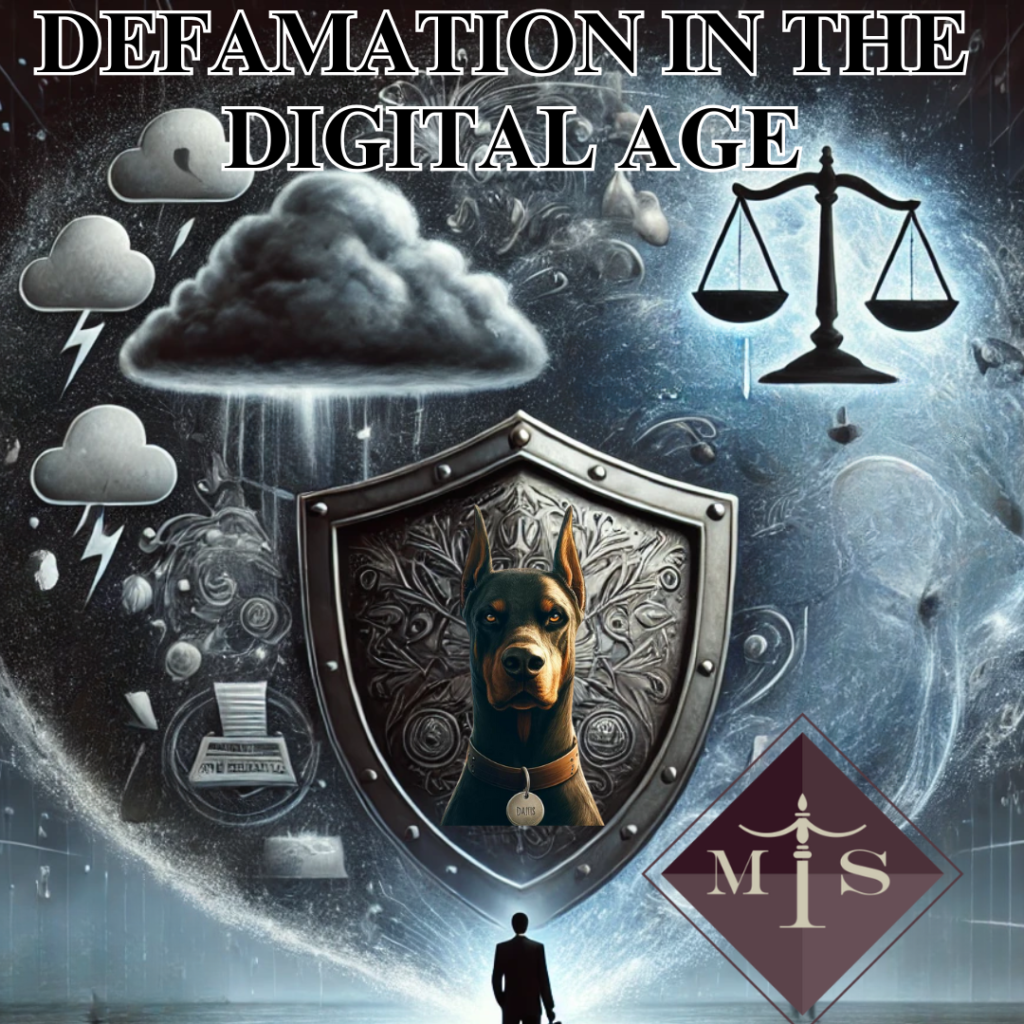
Defamation Lawsuits: Protecting Your Reputation in a Digital World
Defamation is a serious issue in today’s interconnected society, where information can spread like wildfire through social media, blogs, and online forums. In an age where our personal and professional lives are heavily influenced by our online presence, defamation has become a growing concern. The internet gives people the power to share opinions and news instantly, but this freedom also increases the risk of false and harmful statements being made. At MTS Paralegal Services, we understand the importance of protecting your reputation and are here to help if you ever find yourself the victim of defamation. Knowing how to handle defamation lawsuits is essential to safeguard your reputation in the digital world.
What is Defamation?
Defamation is a false statement made about a person or entity that harms their reputation. Canadian law recognizes two primary forms of defamation: libel and slander. Libel refers to written defamation, such as statements made in articles, blogs, or social media posts, while slander involves spoken defamation, like false remarks made during a conversation or broadcast. Whether it’s a Facebook post or a comment on a website, any false claim that damages your character can have long-lasting effects. Defamation lawsuits offer a pathway for those affected to seek justice and repair their good name.
Understanding the nuances of defamation is critical in today’s digital age. With platforms like Instagram, Twitter, and Facebook making it easy for users to share information and opinions at lightning speed, the potential for defamation has never been greater. What starts as a careless or intentionally harmful comment can rapidly escalate, reaching an audience of hundreds, thousands, or even millions in a matter of minutes. This makes defamation lawsuits increasingly relevant as they provide a structured legal process for victims to regain control over their online reputation.
Defamation in the Digital Age: The Power of Online Speech
The digital world has transformed how we interact and communicate. On social media, blogs, and other digital platforms, anyone can express their thoughts and opinions publicly, but this can lead to issues when false information is involved. One of the most significant challenges of living in a digital era is the potential for reputational damage caused by defamation. Harmful statements, even if made without malice, can quickly spiral out of control when shared across multiple platforms. Defamation lawsuits are becoming more prevalent as individuals and businesses recognize the need to protect their online reputations.
In Canada, defamation law requires that certain criteria be met before a defamation lawsuit can proceed. First, the defamatory statement must be made publicly, such as in a blog post or on social media. Second, the statement must clearly refer to the individual or business in question. Third, the statement must be false, and finally, the statement must cause real harm to the reputation of the person or entity. If all these elements are present, defamation lawsuits may be filed, and legal action can be taken to repair the damage.
Given the digital nature of modern communication, once a defamatory statement is made, it can be difficult to contain. Online posts can be shared, reposted, and discussed by others, which can magnify the damage done. Defamation lawsuits are a critical tool for addressing these issues and ensuring that those affected can work to reclaim their good standing.
Can You File Defamation Lawsuits in Canada?
Yes, you can file defamation lawsuits if your reputation has been harmed by false statements made by others. Canadian law is clear in providing individuals and businesses with legal recourse when they’ve been unjustly attacked through defamation. To successfully file a defamation lawsuit, certain conditions must be met. The defamatory statement must be damaging to your reputation, untrue, published or communicated to others, and harmful. When these criteria are fulfilled, victims can pursue defamation lawsuits to seek damages and correct the false information.
Defamation lawsuits can be a lengthy process, but they are often necessary to restore one’s reputation. When it comes to online defamation, the harmful effects of false statements are amplified due to the speed at which information travels on the internet. A single post or tweet can cause personal and professional harm, such as job loss, emotional distress, and financial damage to businesses. Through defamation lawsuits, victims can hold the person who made the false statement accountable and potentially receive compensation for the harm caused.
Take Action to Protect Your Reputation
If your reputation has been damaged by defamatory statements, it’s essential to act swiftly. The first step is to document the defamation by saving screenshots or taking note of when and where the statement was made. Avoid engaging with the individual who defamed you, as this could worsen the situation. Instead, contact a legal expert who specializes in defamation lawsuits. MTS Paralegal Services is experienced in handling defamation cases and can help you navigate the complexities of Canadian defamation law.
When facing defamation, time is of the essence. The longer you wait to take legal action, the more damage can be done to your personal or professional reputation. At MTS Paralegal Services, Tim works diligently to help clients file defamation lawsuits and restore their good name. Whether you’ve been the target of libel or slander, Tim is here to support you and protect your reputation in the digital world.
This content does not constitute legal advice. For up-to-date guidance or legal advice specific to your situation, please contact MTS Paralegal Services Professional Corporation or call (226) 444-4882.
